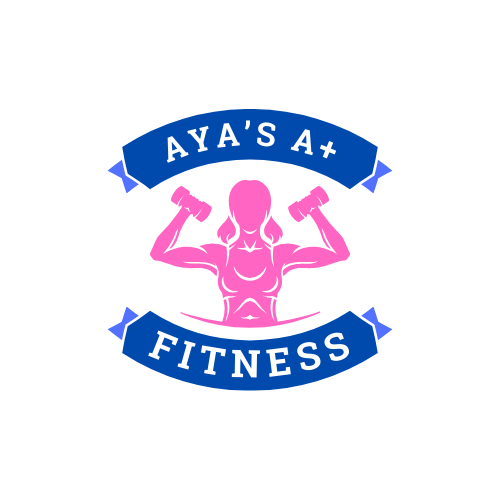We all know that exercise is important, but when life gets busy, it can be easy to let fitness slip down the priority list. Whether you’re juggling work, family, or personal commitments, it often feels like there’s just no time for a workout. However, the benefits of exercise go far beyond just looking good or losing weight. Regular physical activity is one of the most powerful ways to improve your overall well-being and quality of life.
From boosting your mood and energy levels to improving your long-term health, exercise plays a crucial role in how you feel, how well you function, and how long you live. Here are some of the key benefits of exercise and why making time for physical activity should be a non-negotiable part of your routine.
“Regular physical activity is one of the most powerful ways to improve your overall well-being and quality of life.â€
—— Aya
1. Improves Physical Health
One of the most obvious and well-known benefits of exercise is its impact on your physical health. Whether you’re walking, running, lifting weights, or practicing yoga, regular exercise improves almost every aspect of your body.
- Boosts Cardiovascular Health: Exercise strengthens your heart and improves circulation, which helps lower the risk of heart disease, high blood pressure, and stroke. It also improves blood flow, which enhances oxygen delivery to your cells, making your heart and lungs more efficient.
- Maintains Healthy Weight: Regular exercise helps you manage your weight by burning calories and building muscle. It’s an important part of a balanced approach to weight management, in combination with healthy eating habits.
- Increases Strength and Flexibility: Strength training exercises, such as lifting weights or doing bodyweight exercises, build muscle mass and bone density, which help prevent osteoporosis and support your skeletal system as you age. Stretching exercises, like yoga or Pilates, improve flexibility and reduce the risk of injury.
- Boosts Immune System: Exercise strengthens your immune system, which helps your body fight off illness and recover more quickly when you do get sick. Studies show that moderate exercise can boost immune function and reduce the risk of infections.
2. Enhances Mental Health
While exercise is often associated with physical benefits, it has an equally important role in mental health. Exercise releases endorphins—the body’s natural feel-good hormones—that help reduce stress, anxiety, and depression. Here’s how it works:
- Reduces Stress and Anxiety: Physical activity triggers the release of endorphins, which are natural mood enhancers. Exercise also reduces levels of the stress hormone cortisol, helping you feel more relaxed and calm. Even a short walk or workout can have an immediate impact on lowering stress levels.
- Improves Mood: Regular exercise can be as effective as therapy for people with mild to moderate depression. Exercise stimulates brain chemicals that promote feelings of happiness, and the sense of accomplishment from completing a workout helps boost self-esteem.
- Fights Depression: Research has shown that consistent exercise can reduce symptoms of depression, improve mental clarity, and enhance emotional stability. Whether it’s running, swimming, or cycling, physical activity provides a natural way to combat feelings of sadness or low mood.
- Boosts Cognitive Function: Exercise increases blood flow to the brain, which enhances memory, focus, and overall cognitive function. It also helps prevent cognitive decline as you age, reducing the risk of dementia and Alzheimer’s disease.
3. Increases Energy Levels
It may sound counterintuitive—how can exercising when you’re tired make you feel more energetic? The answer lies in how exercise improves oxygen delivery and blood circulation throughout your body, which, in turn, makes you feel more energized.
- Improves Blood Circulation: Exercise increases blood flow, which delivers oxygen and nutrients to your cells, making you feel more alert and energetic throughout the day.
- Enhances Sleep Quality: Regular exercise has been linked to better sleep quality. Physical activity helps you fall asleep faster, sleep more deeply, and feel more rested upon waking, all of which contribute to higher energy levels throughout the day.
- Boosts Stamina and Endurance: Whether you’re running a marathon or just walking up the stairs, exercise helps improve your stamina. Over time, you’ll find that you have more endurance for everyday activities, and your overall energy levels will improve.
4. Improves Longevity and Quality of Life
Exercise doesn’t just help you feel better today—it can help you live a longer, healthier life. Regular physical activity has been linked to a reduced risk of chronic diseases, and it helps improve your quality of life, especially as you age.
- Prevents Chronic Diseases: Consistent exercise helps prevent or manage chronic health conditions such as diabetes, hypertension, heart disease, and certain types of cancer. It helps regulate blood sugar, reduce inflammation, and keep cholesterol levels in check.
- Maintains Bone Health: Weight-bearing exercises like walking, running, and strength training stimulate bone growth and help maintain bone density, which decreases the risk of osteoporosis and fractures as you age.
- Increases Lifespan: Studies have shown that regular physical activity is linked to a longer life. Even small amounts of moderate exercise can add years to your life by reducing the risk of serious health conditions and boosting your body’s natural healing processes.
5. Promotes Better Sleep
One of the lesser-known benefits of exercise is its ability to improve sleep. In our increasingly sleep-deprived society, regular physical activity offers a simple and effective way to improve the quality of your rest.
- Helps You Fall Asleep Faster: Exercise raises your body temperature, and when it drops afterward, it signals your body that it’s time to sleep. This can help you fall asleep more quickly.
- Enhances Sleep Quality: Regular physical activity, especially aerobic exercise, promotes deeper, more restful sleep. It can help alleviate sleep disorders like insomnia and improve your sleep cycle.
- Regulates Sleep Patterns: Exercise can help stabilize your circadian rhythm, making it easier to wake up and fall asleep at consistent times each day, which improves overall sleep quality.
6. Boosts Self-Confidence
Exercise has an undeniable effect on your self-esteem and confidence. As you start to see physical improvements—whether it’s losing weight, building muscle, or simply feeling stronger and healthier—you naturally feel more positive about your body and abilities.
- Increases Self-Worth: The sense of accomplishment that comes from achieving fitness goals—whether it’s running your first 5k, hitting a personal best in the gym, or mastering a new exercise—boosts self-confidence and creates a sense of pride.
- Improves Body Image: Regular exercise helps you feel more comfortable in your own skin. The changes you see in your body—whether it’s a toned physique, improved posture, or better overall health—can positively affect how you view yourself.
- Empowers You Mentally: Fitness teaches you to push through limits and overcome challenges. Each workout is an opportunity to strengthen not just your body, but your mental resilience. This carries over into all areas of life, making you feel empowered and confident in your ability to tackle challenges.
7. Supports Social Connections
Exercise is a great way to connect with others and build a sense of community. Whether you’re joining a fitness class, playing sports with friends, or training with a workout buddy, physical activity provides opportunities for social interaction and support.
- Fosters Social Engagement: Joining a gym, attending group fitness classes, or participating in team sports creates social bonds with like-minded people, which can improve motivation, make exercise more enjoyable, and provide a sense of belonging.
- Encourages Accountability: Having a workout partner or being part of a fitness community helps hold you accountable. Sharing your fitness goals and progress with others increases your commitment and provides motivation to stay consistent.
Exercise is Essential for a Happy, Healthy Life
The benefits of exercise are wide-ranging and touch almost every aspect of your physical, mental, and emotional well-being. From improving cardiovascular health and boosting energy levels to reducing stress and enhancing mood, exercise truly is a game changer for your health.
No matter where you are on your fitness journey, remember that the most important thing is to just get started. It doesn’t matter whether you’re doing a high-intensity workout or simply taking a walk around the block—what matters is that you’re moving. So, prioritize your health and well-being, and let the many benefits of exercise enhance your life in ways you never thought possible.
Exercise truly is a game changer for your health.
—— Aya






